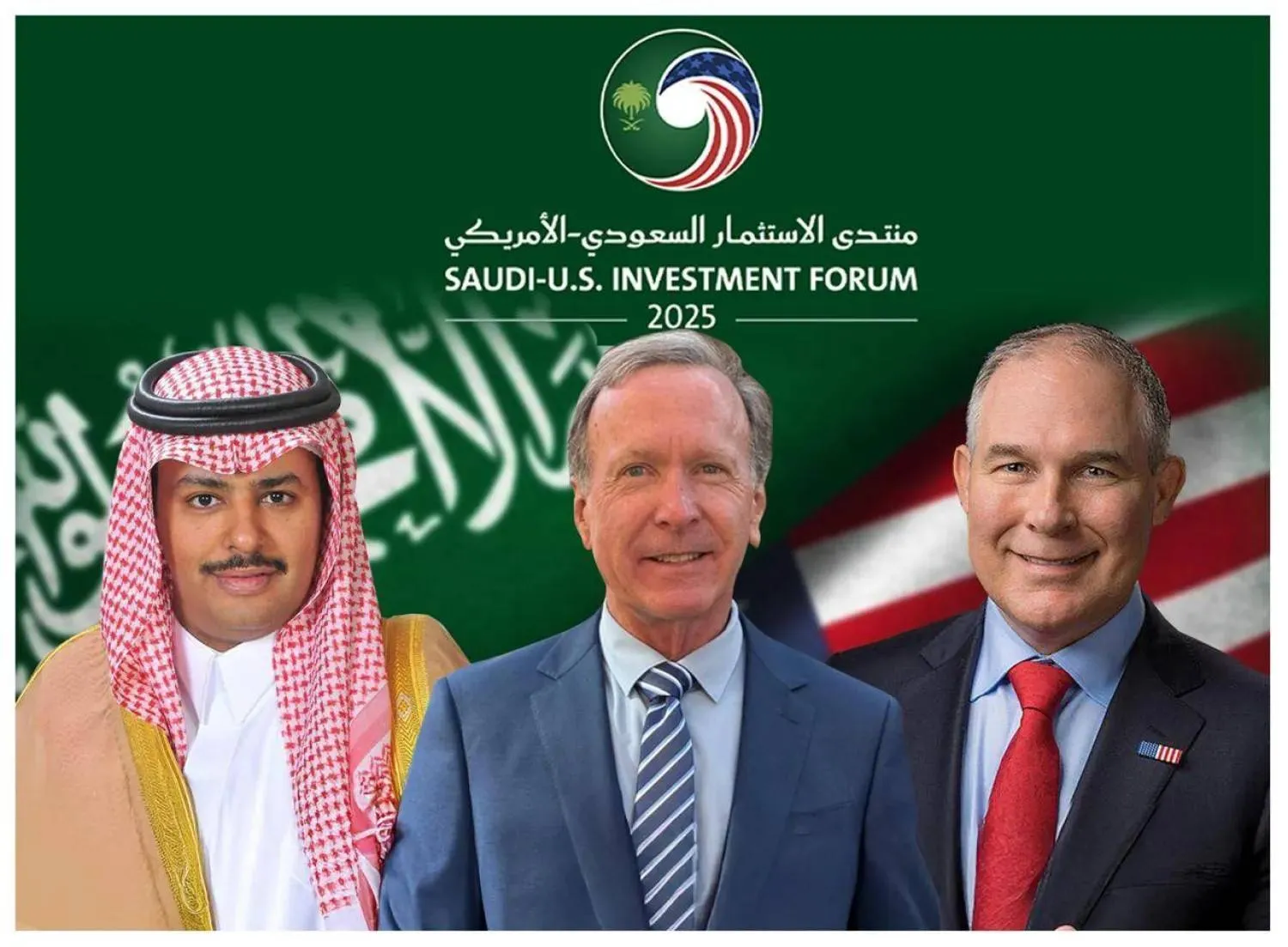A $5 billion energy investment fund was unveiled in Riyadh on Tuesday during the Saudi-US Investment Forum, held in conjunction with US President Donald Trump’s visit to the kingdom, in a move aimed at boosting bilateral partnerships and stabilizing the global energy sector.
The White House announced in a statement that the fund was among several key initiatives agreed during Trump’s visit, calling it a “historic step” toward deepening economic cooperation between the United States and Saudi Arabia.
Scott Pruitt, who served as the Administrator of the Environmental Protection Agency (EPA), told Asharq Al-Awsat the fund will target strategic investments in the energy sector, focusing primarily on US-based companies.
These include firms supporting existing energy hubs and those developing transitional technologies to advance the global energy future and promote efficient manufacturing.
Pruitt said the fund aligns with Saudi Arabia’s Vision 2030, aiming to invest in companies that can benefit from the kingdom’s business environment while also supporting energy-related infrastructure, services, and manufacturing in the US.
The fund is expected to begin deploying its $5 billion capital in 2025, he added.
Strategic Investment in Energy
Neil Bush, chairman of Skytower Investments, a green technology investment firm, said the energy fund brings together experienced partners in fund management and energy investment.
He noted that it will play a critical role in directing strategic capital toward the future of global energy and efficient production.
The fund naturally targets the development of US infrastructure, bolstering America’s leadership in global energy markets and delivering strong returns to investors, Bush said.
Launched during President Trump’s visit, this initiative sends a strong signal of renewed economic momentum between Washington and Riyadh.
Saudi businessman Abdullah Al-Meleihi, CEO of Saudi Excellence Co., described the fund as more than a capital mechanism, calling it a “bridge of trust and ambition” between the two countries.
He emphasized Trump’s role in creating a climate conducive to innovation and opportunity.
Al-Meleihi said the fund is expected to be fully established and financed in 2025, characterizing it as a model of public-private cooperation and strategic alignment between the US and Saudi Arabia.
He noted that it enjoys robust support from the private sector in both countries as well as international investors, and will focus on energy, technology, artificial intelligence in energy, and advanced industries, while also facilitating knowledge transfer to the kingdom and capital investment in the US.









